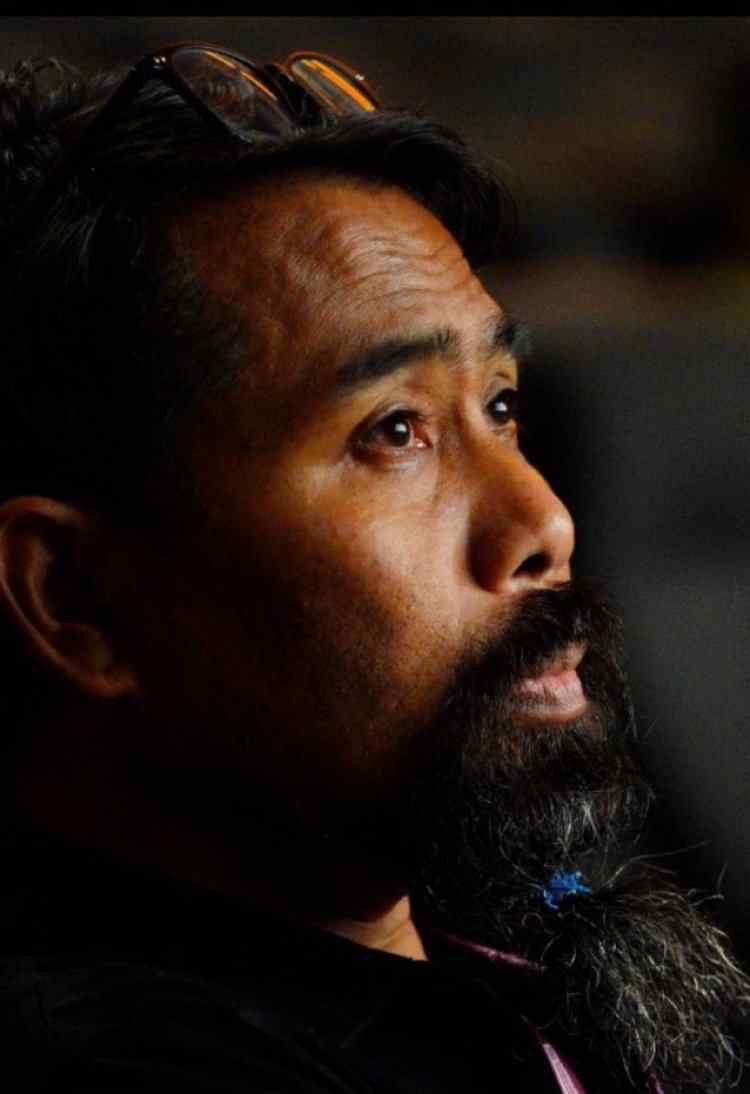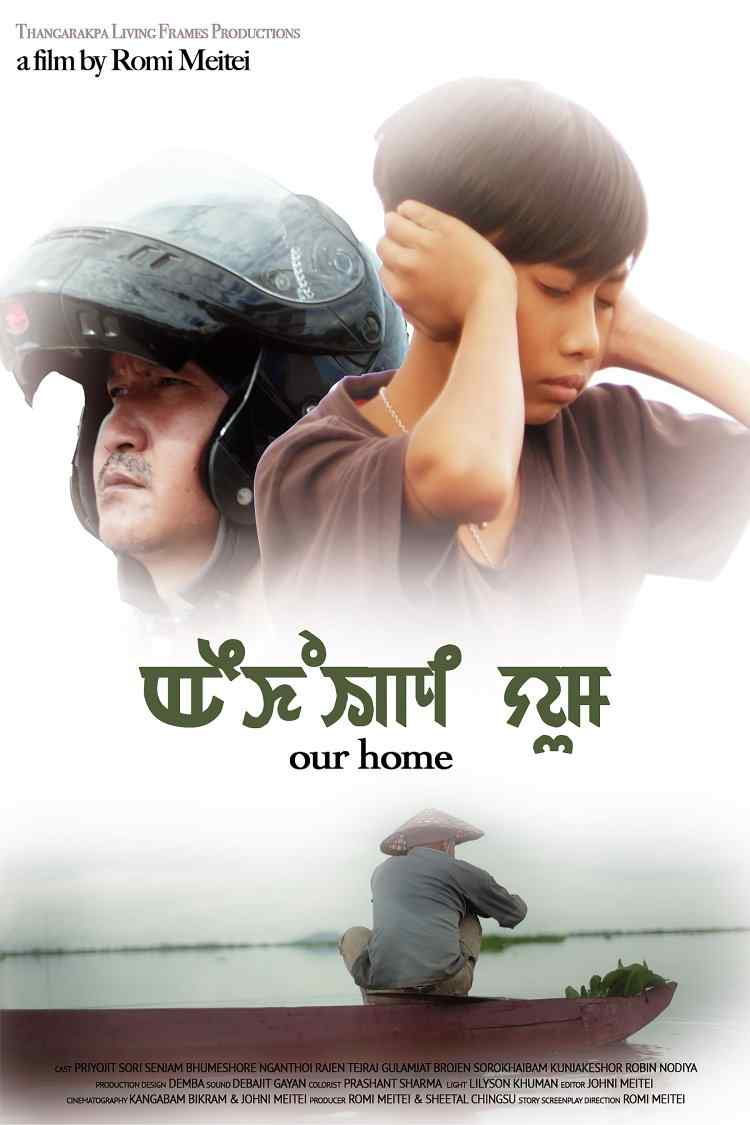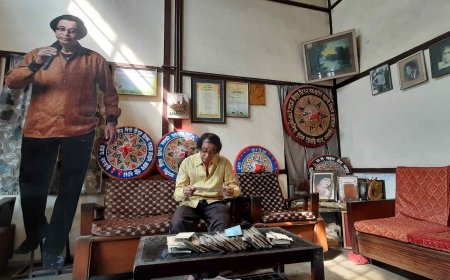In conversation with Manipuri filmmaker Romi Meitei Mayanglambam
During an interview with Manipuri filmmaker, film critic Dipankar Sarkar gleans numerous surprising nuggets of information.

Eikhoigi Yum (Our Home,2022), Romi Meitei Mayanglambam, captures the happiness of owning a home as well as the hopes for a better future and a tranquil existence. The Loktak Lake and its dependents are at the centre of the plot of the film. The narrative of the film subtly captures the charged socio-political ambience affecting the daily lives of people who have residences built above the floating biomass. The filmmaker uses the protagonist Chaoren (Priyojit Ningthoujam), a boy in his adolescence, to illustrate the widespread hardship of the fishermen's people. At the recently held 27th, International Film Festival of Kerala, 2022, the film won two awards- NETPAC Special Jury Mention and FIPRESCI Award for Best International Film, which is the first of its kind for a feature film from Northeast India. In this brief conversation, Romi speaks about the different choices that helped him shape the film.

Image: film still
Are you a full-time filmmaker?
Yes
You have made 40 feature films and several short films which cater to popular tastes. What made you step out of your comfort zone and make Eikhoigi Yum (Our Home, 2022), a film with art-house sensibilities?
Yes, I made a lot of family dramas, romance, and what you called fantasies. But all these are not helping my urge to tell our stories to a larger audience. I always wanted to make films for the targeted audience (Manipur only) and did not want to continue making the same kind of films. So, I started making short films for a global audience, which have won several awards and screened at prestigious festivals like IFFI, MIFF & other festivals abroad. At the same time, I am preparing to collect a bigger fund for a full-length feature film like Eikhoigi Yum” ( Our home). Yes, I want to tell our original stories to a larger audience.
How did the idea of the film occur to you?
It was 2011 when the government of Manipur served the eviction notice. I have witnessed all the crises that have happened between the fisher community and the authorities. The sight of the burnt-down floating huts, dismantling etc did not fade away from my memory. That incident provoked me to write to Eikhoi Yum.
The forceful evacuation of the indigenous fishing population living in floating houses by the government forces of Manipur is at the crux of the film’s narrative. So, does your interest in the subject of the film develop from your political consciousness and certain responsibility towards society?
This film is not a political film. I did not take any sides. I am not telling my story either from the government side or the fishermen's community. Being an artiste, being a human, I just wanted to state “ every form of development should have the sensibility to protect the essence of a small community-based society, otherwise every process of development is mindless and has no values.”
Chaoren (Priyojit Ningthoujam) covers his ears twice in the film. First, while he is rowing a boat and the next time while he is travelling in a vehicle in the chaotic environment of the city. What is the symbolic significance of his act?
Actually, we have kept ourselves away from nature. Through a cinematic medium, I just wanted everyone to feel the stillness of nature. Even I am on a journey to discover such stillness.
In one of the scenes of the film, we hear a group of women residing on the floating lakes singing a song. Any particular reason behind their inclusion in the film?
The wisdom of our forefathers can be achieved and preserved through such poems, songs and dances. These activities are playing a vital and serene role in making our community stronger. You might have noticed in the last part of the film that the sounds of songs are immersed beneath the water. It's a metaphor for how those tools of wisdom vanish through the process of mindless development.
Is the character of the teacher who travels around 50 KMS to reach the school based on a real-life character? How did you develop the character?
Eikhoi Yum is a fictional story and all characters are fictitious. We have seen in our society that most government employees never want to be posted at a place far from their homes. The teacher in the film is an idle example.

Image: film still
Directing a child actor requires a different level of understanding from the filmmaker. How was your experience of working with Master Priyojit Ningthoujam?
Master Priyojit Ningthoujam is a smart boy. Luckily I have a little experience on how to be a friend with boys of their age because most of my short films' protagonists fall under the same age bracket. At the same time, Chaoren never wanted to swim in the lake during shooting. He was very naughty at times and it was really tough to convince him of the swimming scene. It took us three days.
What were the hurdles you and your cinematographer encountered while shooting the film?
We had to encounter lots of challenging situations as we were in the middle of the lake with no electricity. Also, we could not afford to hire a generator for the shoot.
During the editing of the film did the story of the film change or evolve?
Not at all.
The sound is sculpted with a restrained and balanced approach that enhances the realistic feel of the film. What was your thought process while creating the soundscape for the film?
My sound crew did well. They worked hard. My objective was to bring the authentic ambience of Loktak lake into the movie theatre.
You have won two important awards from the national and international critics fraternity. How important are these recognitions?
Winning awards means more responsibility. I would like to thank all the jury members for bestowing me with these huge responsibilities.
What are your thoughts on the current state of filmmaking in Manipur?
In Manipur, documentary filmmakers are progressing. They are really doing good. Recently Manipuri Cinema has celebrated its glorious 50 years. A couple of Manipuri films have been screened at Cannes, Busan, Berlin etc. till now. But at present fiction filmmakers are facing lots of challenges as there are no policies on film that have been implemented yet. On the other hand, it is hard to sell our films to popular OTT platforms. We are in a very pitiful situation.
What is your message for the young and budding filmmakers of the Northeast?
Let's tell our original stories.

Image: film poster
***
About the author: Dipankar Sarkar is an Indian film critic and an alumnus of FTII, Pune.
What's Your Reaction?

































































